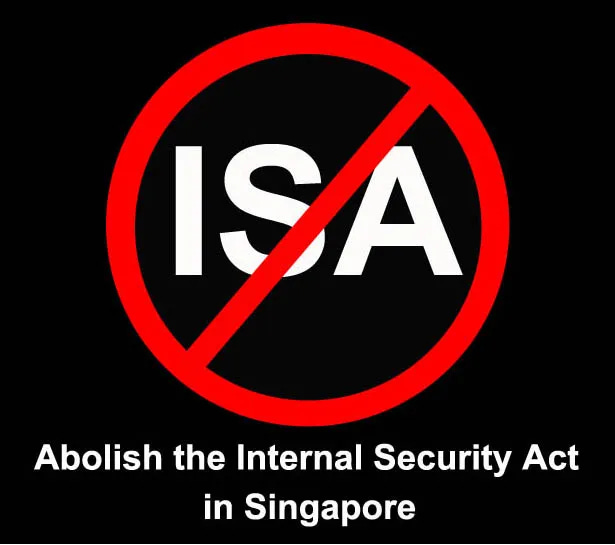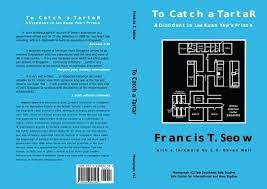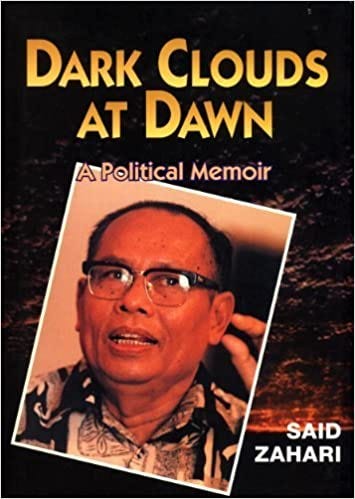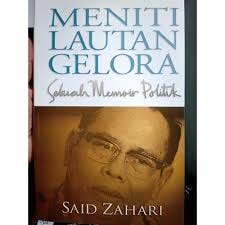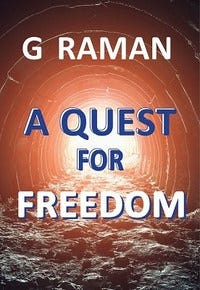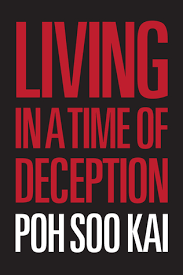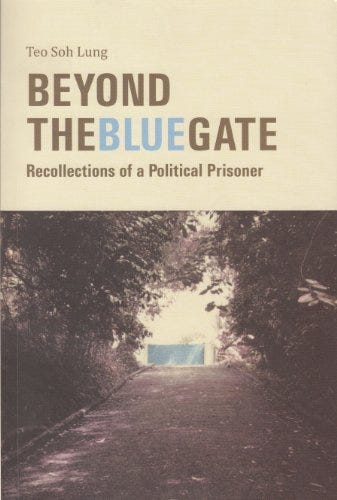A first-hand account of life in detention in Singapore’s draconian ISA
Rebuttal of Josiah Kee's opinion
Zulfikar Shariff’s comments on Josiah Kee’s comments, an apologist of the ISA in Singapore
One of the silliest arguments in the defence of the Internal Security Act (ISA) is that there have not been any criticisms of the Act or the Internal Security Department (ISD) by former detainees.
Josiah Zee, in his article “Defending Singapore’s Internal Security Act: Balancing the need for national security with the rule of law” claimed:
Josiah used the claim that there have been a lack of challenge by former detainees as an indication that those detained are really guilty.
How silly.
For starters, let us note that several former detainees have written about their experiences and how they were forced to make false confessions.
The best known book on the corruption of the ISD is probably Francis Seow’s To Catch a Tartar.
Seow was a former Solicitor General of Singapore. He was arrested and detained for 72 days because he challenged Lee Kuan Yew’s attempt to control the Law Society. He described how the ISD extracts false confessions from detainees:
“Degraded and humiliated by being compelled to stand motionless, barefooted, and half-dressed or, worse, stark naked, in the cold, chilling air, before a fully-clothed ruffian band of aggressive inquisitors, confounded for hours on end by their relentless, strident barrage of questions interspersed with abuses and obscenities, and debilitated by long deprivation of sleep, a detainee in this extreme state of physical discomfort and psychological disorientation is easily reduced to a malleable and suggestible condition to agree to or make any statement desired by his tormentors. To hasten the disintegration process, physical force is freely administered and/or water is doused or sprayed over the detainee’s naked torso. Many detainees have been known to plead in desperation for its cessation and clutch at vague promises of early release by making “co-operative” self-incriminating statements.”
Said Zahari was detained without trial for about 17 years. He was arrested a few hours after he was elected as president of Partai Rakyat Singapura (Singapore People’s Party).
Said Zahari discussed how the Deputy Director of Special Branch (precursor to the ISD) said they may release him and pretend he had tried to escape, allowing them to shoot him. Said Zahari relayed the mental torture that the ISD put him through. He was never charged with any offence.
G Raman was a Singapore lawyer. He had participated in political cases. A major reason for his arrest was to create a fiction to justify Dr Poh Soo Kai’s detention.
Raman revealed what happened to him when he was arrested:
“Just then, in marched the Director of ISD himself, one Lim Chye Heng. I had heard of him as he was previously the officer in charge of Special Investigation Section (SIS) of the CID. The SIS dealt with investigations into major crimes like murder.
He shouted at me asking me to stand up. I think he uttered words like, “What the hell do you think you are doing?” and jabbed at my chest. He had long strong fingers and his jabbing hurt me. I told him not to be brutal. That was it. All fury was unleashed. He slapped me several times and his henchmen around me punched me and kicked me.”
Raman was told to make a television confession in order to be released. He had to frame Dr Poh Soo Kai and accuse Dr Poh of being a communist. He complied. When he subsequently spoke with a State Prosecutor who wanted him to be a witness against Dr Poh, Raman recanted the confession and accusation. As a result, the PAP reneged on their promised release. Raman was kept in detention.
When he was finally released about a year later, he was not allowed to practice law for two years, not allowed to meet other former political detainees and not allowed to leave Singapore. He was placed on Restricted Order.
Dr Poh was an opposition leader. He was initially detained in 1963 for 11 years. He was then redetained in 1976 for 6 more years.
According to Dr Poh, he was initially not interrogated. He was left in a cold room for hours everyday.
Dr Poh wrote:
“My case is in fact a good one to show that the so-called ISA safeguards are ridiculous. I was almost released by the Central [Malaysian] government, but Separation took place. The Advisory Board recommended my release. Their recommendation was rejected without any reasons given. The British Intelligence representative sent to talk to me would have recommended release as well. It took about two years before this was hosed down. I even had a copy of a letter from Special Branch which said I was not a communist. Yet none of these mattered at all. After August 1965 [Separation from Malaysia] one made made the decisions on detention without trial.’
Teo Soh Lung was a lawyer and social activist. She was initially detained in 1987. Together with several other detainees, she was forced to make a Television confession of being a Marxist. She was released a few months later, in 1988.
After their release, Soh Lung and 8 others sent a Press statement to recant their false confessions and described what happened in detention.
According to the detainees,
“Following our sudden arrests, we were subjected to harsh and intensive interrogation, deprived of sleep and rest, some of us for as long as 70 hours inside freezing cold rooms…
Most of us were made to stand continually during interrogation, some of us for over 20 hours and under the full blast of airconditioning turned to a very low temperature.
Under these conditions, one of us was repeatedly doused with cold water during interrogation.
Most of us were hit hard in the face, some for not less than 50 times, while others were assaulted on other parts of the body, during the first three days of interrogation.”
They noted that they:
“had been intimidated by implicit and explicit threats against our safety should we speak up on our arrests and detention.”
For recanting the false statements and speaking publicly about their arrests, Soh Lung and the other former detainees were re-arrested. Soh Lung was re-released 2 years later.
Detainees are not allowed to speak
What Josiah Zee may not realise is that former detainees are not allowed to discuss publicly what happened to them in detention. Upon release, former detainees are placed in Restricted Order (RO).
RO is a 2 year order. And just like Detention Order, it is indefinite. The PAP government can renew the order every 2 years.
No one will speak publicly about their detention, no matter how unjust and brutal it is.
They are kept in close control after release. Being on RO means curfews, electronic tagging, restriction from joining associations, meeting friends, social media accounts or public statements.
To speak publicly will result in re-arrest and indefinite detention.
Why would anyone challenge the ISA? The ISD had absolute power over detainees in detention.
And they had control over detainees’ actions and movements upon release.
No one will challenge the ISA. Challenge it and be detained for much longer.
I am one of the fortunate few.
I can speak publicly because I am in Australia.
No recent detainee is able to do the same.
Subscribe Below:



